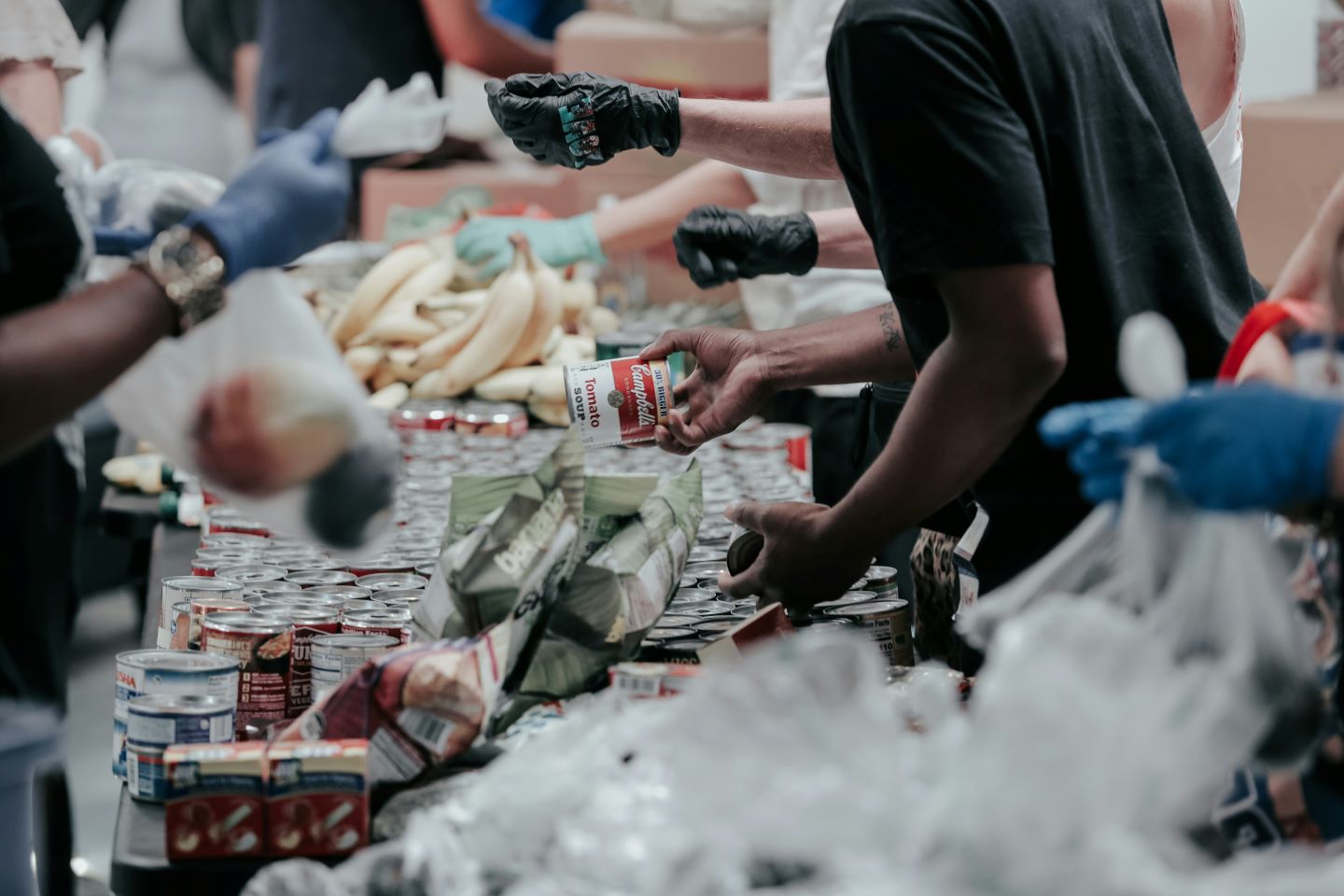Western Australian charities are calling for more support from the government and corporate sectors so they can continue making a positive impact on the lives of people in need in the community.


Western Australian charities are calling for more support from the government and corporate sectors so they can continue making a positive impact on the lives of people in need in the community.
Feed, educate, advocate
Foodbank WA makes a difference to the lives of people in Western Australia by addressing food insecurity and providing essential support to those in need.
The charity supplies essential food items to individuals and families experiencing hardship, ensuring they have access to healthy and nutritious food, working with a network of community organisations and charities to distribute food across the state.
“The impact we make in the community is fuelled by our purpose, which is to feed, educate and advocate,” Foodbank WA CEO Kate O'Hara, said.
The organisation also runs a School Breakfast Program in 543 schools across Western Australia, which helps more than half of the schools in the state, ensuring WA children start the day with a nutritious meal, which helps improve concentration, attendance and overall academic performance.
Foodbank plays a crucial role in providing emergency food relief to affected communities in the metro area, and regional and remote areas, helping affected communities to recover from natural disasters or economic downturns. This was particularly evident during COVID, where the charity coordinated emergency food relief hampers for more than 30 remote Aboriginal Community Controlled Organisations.
The organisation also runs nutrition education programs to empower youth and adults with the knowledge and skills to make better food decisions. Foodbank's nom! nutrition program includes cooking sessions to teach people how to prepare healthy meals and also teaches them about nutrition, budgeting, and how to minimise food waste.
“We advocate for the issues surrounding food insecurity, bringing attention to the challenges faced by many Western Australians and encouraging community action and support. By raising awareness of food insecurity and by telling the stories of our customers we hope to break down the social stigma around asking for help,” Ms O’Hara said.
Foodbank is calling for more support from the government sector, including tax incentives for farmers, producers and businesses who donate excess food, to help the charity provide more impact to people in need across the state.
“Our wishlist for how we could make more of an impact to the lives of people in WA would include increased funding for our operations, particularly in remote and regional areas where food insecurity is more prevalent,” Ms O’Hara said.

Foodbank WA's mission is to fight hunger and food insecurity in WA.
Financial support through increased grants would help cover operational costs, transport logistics, and the procurement of fresh, nutritious food, while sponsorships, regular donations, and matching donation programs would enable Foodbank to invest in infrastructure, technology, and the resources needed to scale our services.
“Support of public awareness campaigns that highlight the issue of food insecurity and the importance of food and financial donations, along with encouraging more widespread community involvement would also be beneficial for the Western Australian community,” she added.
Foodbank WA seeks to engage in long-term strategic partnerships with those passionate about the cause, with the aim of finding sustainable solutions to food insecurity.
“One of the UN Sustainable Development Goals is to reach zero hunger in 2030. We would like to see Western Australia lead the way. There is enough food, we just need the will,” Ms O’Hara added.
“With our purpose always front of mind, we ultimately hope to create lasting change in the fight against hunger.”
Alignment, collaboration, partnerships
In 2023-2024, Anglicare WA supported 46,108 Western Australians through 100 direct services in 153 locations. This included 30,994 children and young people, and 6,842 people who identified as First Nations.
Some of the support services Anglicare WA provides includes family and domestic violence services, parenting and care giver support services, youth housing, mental health and wellbeing services, financial counselling, and disability support.
 Anglicare WA provides a range of support services for thousands of Western Australians.
Anglicare WA provides a range of support services for thousands of Western Australians.
“When we are looking to work with corporates, we are looking for alignment, collaboration, and true partnership,” Anglicare WA General Manager Philanthropy Bec Stott said.
“Financial contributions are wonderful, but it’s one of so many ways organisations can meaningfully support the work that we are doing. Corporates have seats at big tables, and we are increasingly deepening our relationships to find ways to use this voice to influence decision makers and advocate for real change.”
Anglicare WA’s partnership with Bankwest is an example of this, which goes beyond financial support as a holistic collaboration that drives real impact in our community.
“From their internal promotional support with our Gift in Wills program and wonderful brand exposure for our Winter Appeal campaign, to hands-on volunteering and support for events like PROSH Day and the Op Shop Ball, Bankwest has become a true partner in our mission to make a difference. Together we’re not just working side by side, but heart to heart, creating lasting change for those in need,” Ms Stott said.
Anglicare WA has been holding a series of events specifically for corporate partners, which highlight areas of need, and supports them with tools and resources. These can then be used to support and guide employees in their engagement, and to advocate with confidence.
“These events have been great for our partners to connect with other like-minded people and to create a network of corporate changemakers,” she added.
MNDAWA hosts events such as the Walk to Defeat MND to bring the community together, create awareness and raise funds.
Donations, sponsorships, contribution
The Motor Neurone Disease Association of WA (MNDAWA) delivers person-centred support and specialist care to people affected by MND in Western Australia.
“The team at MNDAWA work every day to provide the very best care, advice, and support to people living with MND and their family members. Our MND advisory team are available from the moment a person has a diagnosis of MND and they are there for as long as they are needed,” MNDAWA CEO Maeve Egan said.
“The Association provides the most up-to-date information to assist families to make the right decisions about their care and what supports are available to assist them with the impact of the disease.”
Ms Egan said one of the organisation’s biggest challenges is helping people with MND navigate the funding challenges of NDIS or the aged care system. “These are complex bureaucratic government structures and don’t always work fast enough for progressive conditions or are chronically under-funded, as is the case in the aged care system,” she said.
“We advocate for people when the systems are not responsive or falling short of the needs of a person with MND. We wish these challenges didn’t exist and solutions can rest with government agencies and policy in ensuring there are priority pathways and consideration for rapidly progressive conditions.”
The organisation takes responsibility to ensure they are communicating the impact MND has on people’s lives to keep the support they provide alive. “It is our responsibility to advocate and communicate the impact and the trajectory of the disease, to be proactive in driving awareness and fostering a sense of community and belonging. We want to ensure people don’t feel alone and that there is a community around them,” Ms Egan said.
In addition to the service delivery team, MNDAWA funds loan equipment, counselling support, support groups and education programs. “We do everything we can to assist families living with MND,” Ms Egan said.
“Donations, sponsorships, grants or volunteer contributions are essential to our sustainability, however big or small, it all contributes to this community that comes together to make a difference in all sorts of ways.”

Constable Care Foundation (CCF) has been fulfilling its mission to keep Western Australian children and young people safe for 35 years.
Education, community, support
Constable Care Foundation (CCF) has been fulfilling its mission to keep Western Australian children and young people safe for 35 years, but the growing demand for its safety and social programs in our rapidly changing society is "overwhelming".
“The WA community is crying out for engaging youth education programs to address a number of issues that go beyond basic physical safety,” CCF chief executive Ian Anstee said.
“Young people are needing to learn about cybersafety, consent and protective behaviours, discrimination and bullying, family and domestic violence, mental health, drugs and alcohol, as well as road safety, basic First Aid and more.
"We live in complicated times and as WA's leading youth safety provider, we aim to address all these hazards, expand our offering of programs and reach as many young people as possible.
“To meet this need and arm the next generation with lifesaving skills we need more financial support from all levels of government and the private sector.”
















